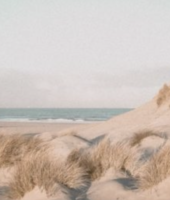“What is art, after all, but a protest against the horrible inclemency of life?”
-Aldous Huxley
We live in an age where students are shunned from pursuing the arts and humanities. The threat of joblessness looms over our heads, and the desire for material wealth and external validation drags us through life as a carrot and stick do for a mule.
However, if we wish to “live deliberately” as American author Henry David Thoreau once mentioned in Walden, we must distance ourselves from conformity of thought. There is no need to take this literally and move to the wilderness as Thoreau did (unless you want to), but consider a metaphorical distance: if you were to separate your own aspirations from those that your surroundings impose on you, what would you want to do?
If, like many students, you find that your desire to study the arts has been clouded by storms of well-meaning parents and teachers urging you to abandon your passions for the sake of a “safe” career path, this article is for you.
Of course, there are plenty of internet sources that highlight the various career paths one can pursue with a fine arts or humanities degree, but that is not what I intend to convey in this article. And by all means, you do not have to pursue a humanities degree at university. There is always the option of acquiring knowledge on your own, or perhaps pursuing a minor in humanities and a major related to a different field of study. But university is an excellent place to bask in the abundance of ideas. There are not many places where you can encounter such strong creative and intellectual energy for something that you are passionate about just as much as others are. Careers and degrees aside, my goal here is merely to advertise a pursuit higher than that of wealth.
Art is medicine for a world plagued by injustice.
It’s probably not something you recognize regularly, but think about how many times the dullness of everyday life has been invigorated by art. Maybe this means listening to music when you’re sick, and letting the rhythm numb your bodily aches and lull you to sleep. Maybe this happens when you escape into your favorite novel at the end of a tough day. Maybe this happens when words can’t do justice to your feelings, and you let your thoughts speak through the passionate language of dance. Here, we see art as something that soothes the injustice of our personal pains.
Art is not just a means of escape, however. It is also a powerful tool to fight social and political injustice.
We protest violence by capturing powerful images through photography. We tell the stories of the oppressed through poetry, saturated with emotion and longing for a better world. We expose depravity in documentaries. Most importantly, we come to understand what is right and wrong by staying connected with our thoughts. Such things do not occur through the inhalation of facts and the computation of machinery. Although those are valuable as well, we cannot forget how vital it is to experiment with our own creativity, as well as with our thoughts. And what better way to do this than to study philosophy, poetry, history, music, and as a result, ourselves?






